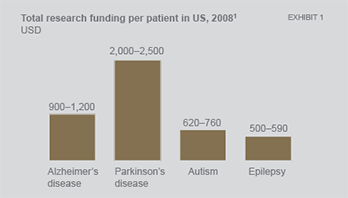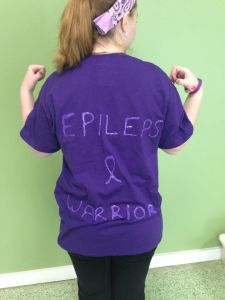
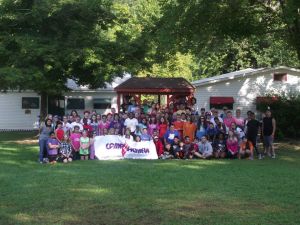
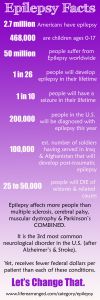

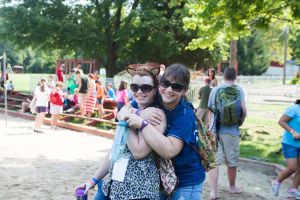
The Epilepsy Foundation’s slogan is: “Not another moment lost to seizures.” Many people are affected by epilepsy either directly or indirectly every year and work towards educating people on this highly misunderstood condition—much of which takes place in the month of November: epilepsy awareness month.
Epilepsy is defined as a neurological disorder affecting the nervous system, according to the Epilepsy Foundation’s website. This can cause epileptic seizures and while not every person with epilepsy will have the same types of seizures, that is one of the factors that characterizes a person having epilepsy.
So imagine: losing a certain amount of your independence, not being able to drive, relying heavily on people and, depending on certain side effects from anticonvulsant medication, can be forgetful at times as well. Those are just a few of the things people living with epilepsy have to deal with on a day-to-day basis.
These are some of the things that Monica Staehle, sophomore psychology major and business minor, has to deal with as well. Staehle has been living with epilepsy since she was 10-months old, being prescribed seven different anticonvulsants throughout life and has worked to push through the challenges and educate people since then. “I want to become a therapist for people with disabilities because I didn’t have anyone to talk to for years,” Staehle said. “That decision was definitely influenced by my epilepsy.”
There are two main types of seizures that Staehle has, including myoclonic and sometimes grand-mals. How exactly then do these types of seizures have an impact? A myoclonic seizure involves muscle spasms and jerking and grand mals, the seizure that people usually associate with epilepsy, is characterized by dropping down, falling unconscious and convulsions. The seizures are not often predictable—they just happen.
One challenge that Staehle faced was the uncertainty of whether she would be able to live on campus this year after having a grand mal over the summer. This is where it helps to have a strong support system nearby. One of those people is Staehle’s roommate. “It’s always a little scary because I’m not sure when she could have one [a seizure] and if I will even be in the room when it happens,” Jeanine Kohlbecker, sophomore exercise science major with a sports science track, said. “I am always on my toes when I’m around Monica just in case because I don’t want her to get hurt if she were to have one [a seizure].”
Another strong support system in Staehle’s life has been her family. “Having a sister with epilepsy in the family is a very small challenge because Monica does a great job of dealing with the hardships that she faces,” Phillip Staehle, Monica’s brother, said. “I think it has made us all better at embracing challenges and being prepared for anything. We are always there for her with whatever she needs and we are happy to do it for her.” Staehle said that her family is also supportive and goes through everything from doctors’ visits to tests with her.
Raising awareness to people and simply knowing the facts about this condition can help, even if much of it occurs in November, Epilepsy Awareness Month. “We are normal—there’s nothing wrong with us and it is not a mental disability,” Staehle said. “Don’t say ‘what’s wrong with you?’ rather say ‘what can I do to help?’”
Another outlet of support and jumping point for educating can be found at Camp Achieve, sponsored by the Epilepsy Foundation of Eastern Pennsylvania (EFEPA). Staehle has gone as both a camper and a counselor now, meeting friends and educating others along the way. “The more you advocate and educate the less control this disorder has on you,” Hillary, one of Staehle’s friends from camp, said.
Epilepsy receives significantly less funding than other existing conditions out there. “I didn’t realize how little funding goes into it because most of it goes into cancer and diabetes research,” Staehle said. Epilepsy is more prevalent than autism, multiple sclerosis, and Parkinson’s combined but it receives less funding per patient, according to the EFEPA’s website. Funding is one of the things that can help raise awareness and work towards a cure for epilepsy.
Camp Achieve was also the first place Staehle met someone else living with epilepsy. “You are there to keep them safe and be supportive of them,” Staehle said. “Everybody is in the same boat so you’re not alone…it’s really nice.”
Matt Musso, a friend from Camp Achieve, was also able to give some perspective on having epilepsy himself, something that he has been living with for nine years now. “My first year as a camper I got to meet other people with epilepsy,” Musso said over Skype. “It helped me deal with epilepsy a lot better.” As a counselor, Musso said that you could learn a lot more of what to do if someone has a seizure.
Working towards educating others on epilepsy, Musso has made speeches to young adults with epilepsy, was involved with the Epilepsy Foundation Walk and keeps up to date with the Epilepsy Foundation’s “Story of the Day,” which will also feature his own story.
When asked if they would ever change their situation, both gave a very similar answer: they would not change the fact that they have epilepsy because it has made them stronger. “It’s like how people complain that they got a paper cut…but a paper cut is not that that bad to me,” Musso said. “It’s okay to just say that you have epilepsy and you know you are not alone.”

